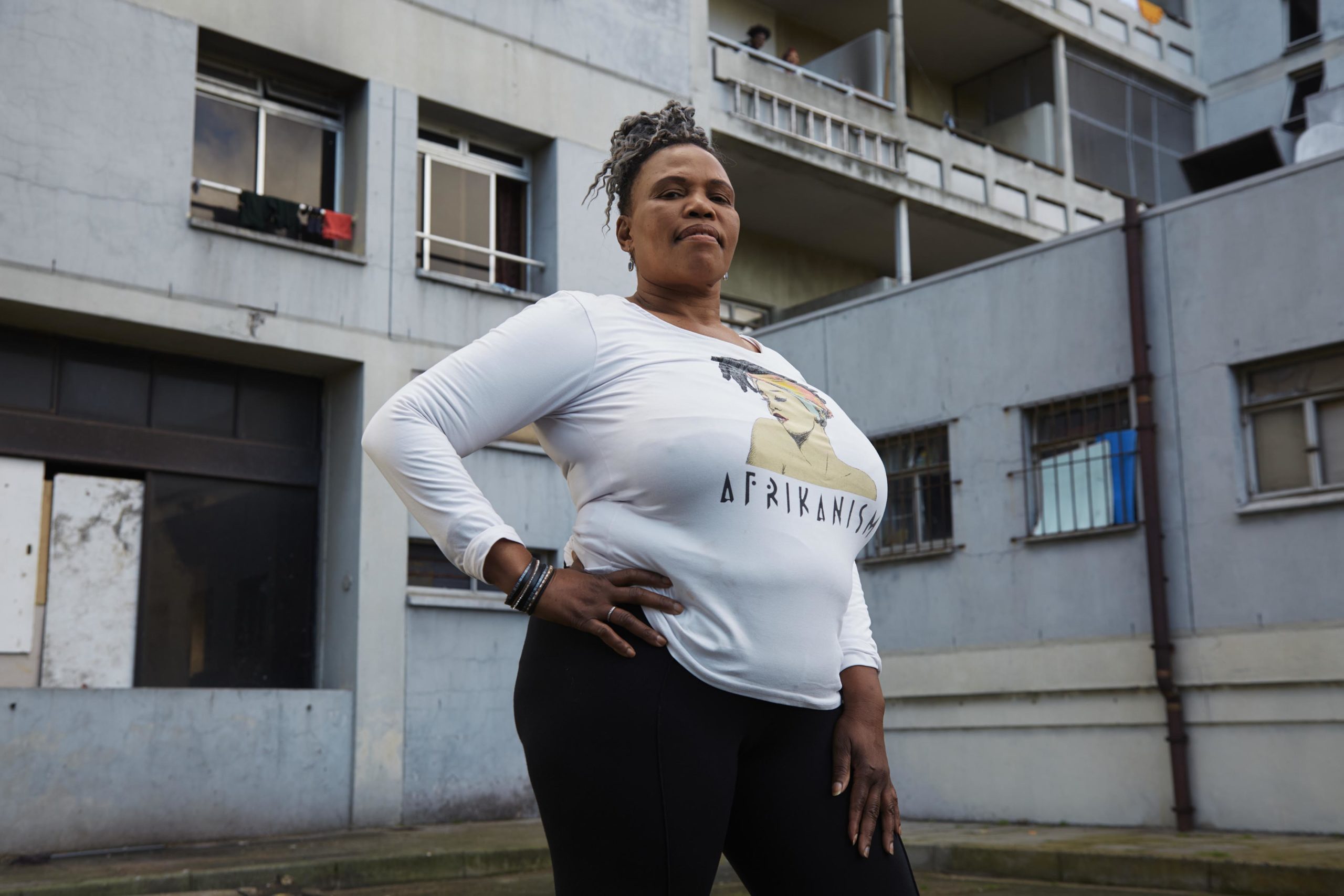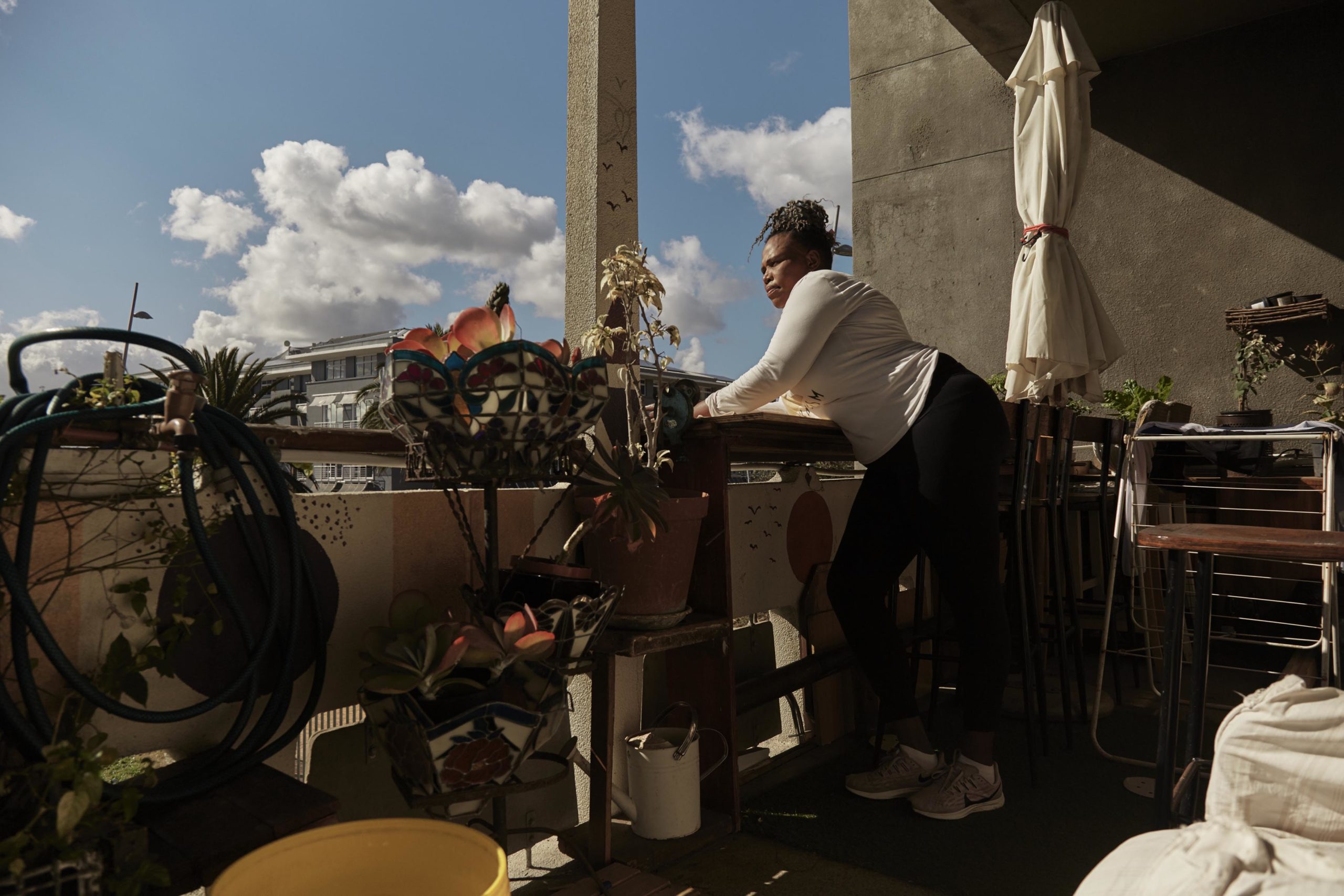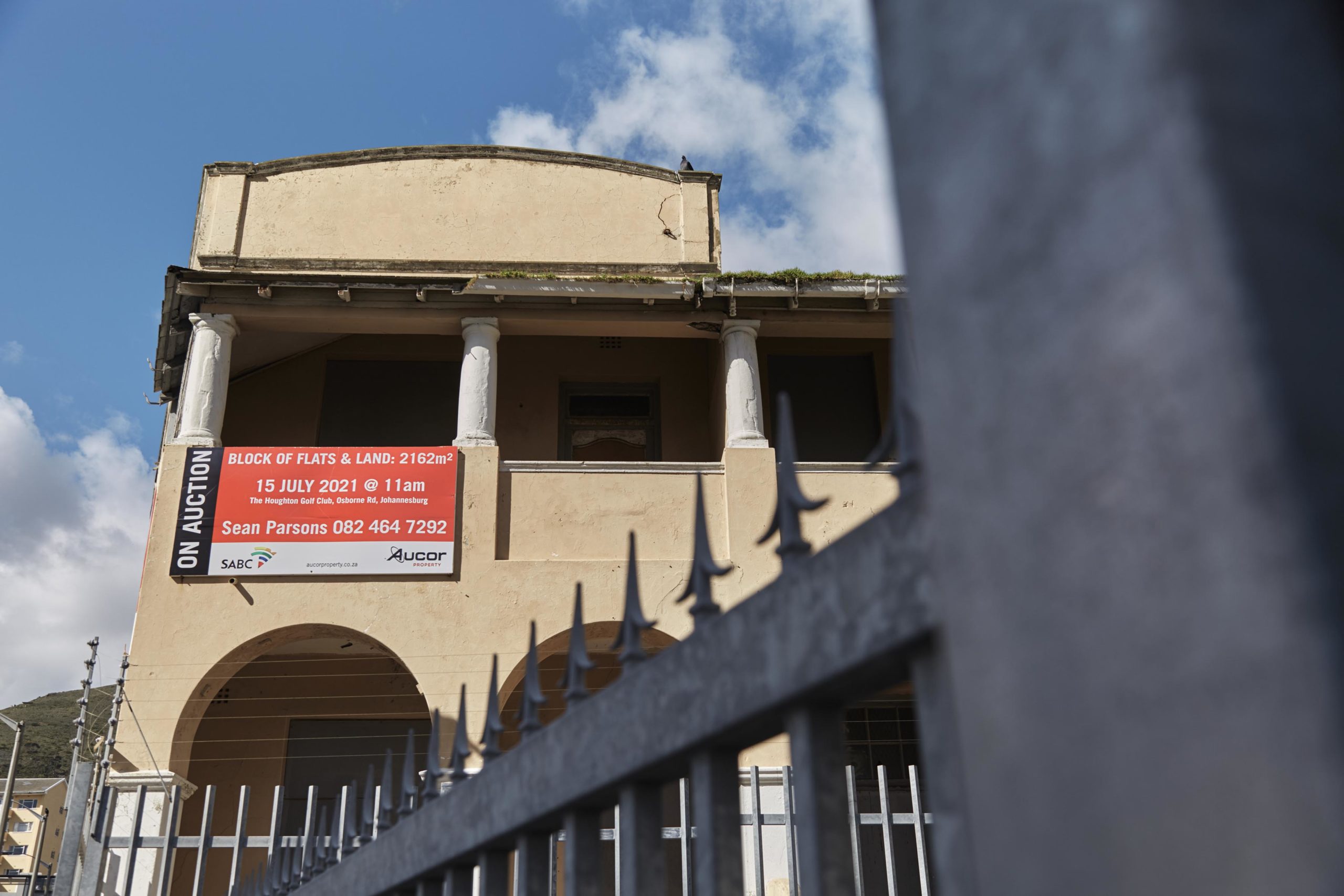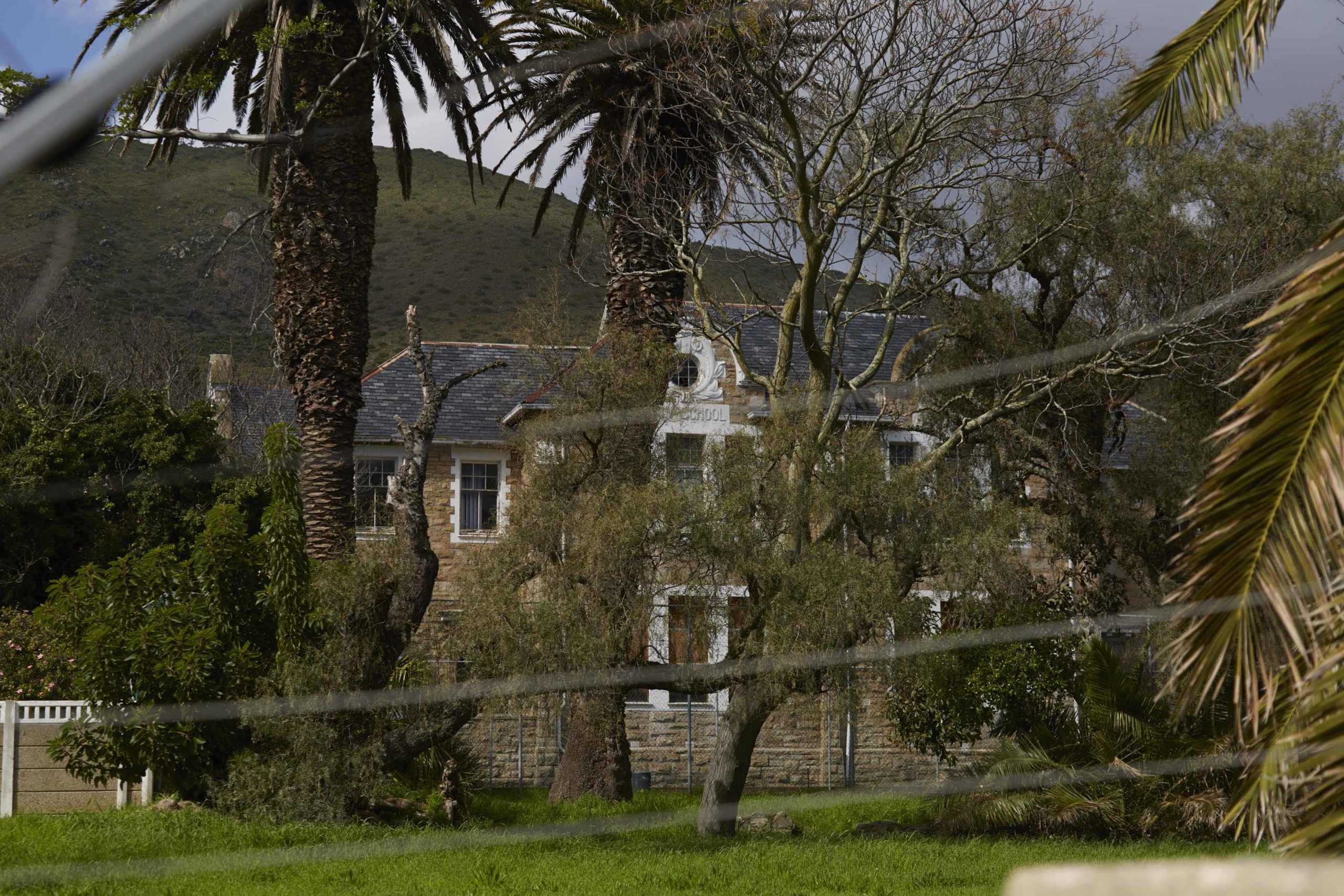Victory for low-cost housing activists in Sea Point
When Elizabeth Gqoboka first saw the ocean from the promenade, she knew she wanted to live there. Decades later, affordable housing will come to the area, thanks to the efforts of activists.
Author:
8 September 2021

Housing activist Elizabeth Gqoboka, 52, has been working as a domestic worker and caregiver in Sea Point, one of the most exclusive suburbs in Cape Town, for 20 years. She celebrated recently after winning an almost three-decade battle for affordable housing in the area in July, when the South African Broadcasting Corporation (SABC) sold its Rockland Villas property to the Housing Development Agency.
This could be a landmark moment in the battle for affordable housing in Cape Town’s inner city after activists initially identified this property as a possible location for low-cost housing in 1996.
The Housing Development Agency, which was established by Parliament and reports to the minister of human settlements, bought the property for R50 million. But the decision came only after a planned auction of the building was stopped at the last minute in May.
Gqoboka is the Sea Point chapter leader of Reclaim the City, a grassroots organisation advocating for affordable housing. She is well known in the area. As she walks along Main Road smiling at the people who greet her, she says: “They probably think I am coming here to occupy.” The mother and grandmother originally from Upington in the Northern Cape saw the ocean for the first time on a visit to Sea Point in the early 1990s. She fell in love with the area and decided she wanted to live there.

This is how her struggle began. She explains that she fights for affordable housing in Sea Point because people in the area are often left stranded, homeless or are forced to live alone in small rooms.
“We saw that people were not uniting with their families because as a domestic worker in Sea Point, body corporate rules did not allow people to live with their families. They would provide you with a domestic worker’s room but your family was not allowed to live with you,” she says.
Sea Point is one of the costliest places to live in Cape Town because it is close to the central business district, has easy access to public transport and shops and includes the beautiful Sea Point promenade. These amenities should not be for the rich alone, activists argue, which is why there should be affordable housing in the area.
“We decided that there was a need and that this was affecting the women. I can remember that in 1996 we came to occupy [the Rockland Villas] building. It was after about 5pm and before 6pm we were all arrested. We were locked up and we appeared in court the next morning. The case was dismissed and we walked out with a warning. That is the history of this place.”
‘We want equality’
The auction of the property to a private buyer was stopped in May when social justice movements including the Social Justice Coalition and Reclaim the City protested by temporarily occupying the building.
The high court granted the Housing Development Agency an interdict to stop the auction, describing it as a breach of state-owned enterprises property disposal policies. The SABC was selling the property as a cost-saving exercise.
“We wanted … answers from them,” Gqoboka says. “They were well aware they were supposed to consult us first. We wanted the site. Why did they overlook us? We are fighting for the same rights for low-income people. When we came here, it was a very successful march.”
The 162-square-metre building, which used to house SABC staffers, now needs renovation. Its two storeys have the potential for a third and more space can be created if the parking lot is converted into more housing or a small playground.

“You can see that this is a place where people could live. Government should take into consideration that there is not enough land in Sea Point and the places that belong to the government like Tafelberg are supposed to be implemented [as affordable housing]. The actual places that the government [owns], they need to allocate those places for low-cost housing. There is no way that Cape Town can be a special place where they don’t want to see change. We want equality. This is how we feel,” Gqoboka says.
After all her efforts to engage with the government on the property, she was disappointed when she found out about the auction.
“The sad part about it is to think that the government knew the struggle that we’ve been going through for so many years in Sea Point. We felt it was so unfair because they were aware of what we’ve been going through. We felt that our struggle had been falling on deaf ears.”
Winds of change
A joint statement by Ndifuna Ukwazi and Reclaim the City in August said there is a backlog of more than 365 000 households that need affordable homes in Cape Town. An average house in the city costs R1 513 254. These estimates are from 2019 and have likely increased.
“A whopping 95% of families in Cape Town are unable to afford homes at this price (the majority of whom are Black, coloured and Indian families), perpetuating the apartheid legacy of keeping people of colour priced out of the well-located areas they were legally barred from under apartheid,” the statement said.
“Interventions in preventing the sale of well-located land like Rockland Villas and Tafelberg to the private sector sends an important signal to those wishing to maintain the apartheid spatial structure in the City of Cape Town, and heralds the winds of change for the city and its people. These show that not only is it necessary to reconsider a market-centric, exclusionary approach to property, but that it is also possible to use land for alternative, more just uses.”
Related article:
The Department of Human Settlements in the Western Cape claims it is committed to providing affordable housing. “This, along with our aim to effectively address the apartheid spatial planning legacy, forms part of the reasons why we have commenced, as a starting point, with affordable rental housing provision within the inner city.”
But housing activists remain sceptical. The government has made no affordable housing opportunities available in the inner city since 1994. Gqoboka hopes every piece of usable vacant land is given to these projects. “I hope that the government is going to open their eyes,” she says.
“These buildings, the government should renovate them and make use of this land for houses because there is no other land in Cape Town that is really available, unless they are taking us to the outskirts and none of us wants to go to the outskirts.”
Room with a view
Gqoboka has been part of the occupation of Ahmed Kathrada House near the V&A Waterfront since 2017. The government-owned building was standing empty before occupiers moved in to protest against the lack of affordable housing in the area. Now she has a room with a balcony overlooking the ocean, something she dreamed of when first coming to the area. Living in the city has changed the lives of many people in the occupation.
“We have been here for five years. My life has changed. I live in a place where I can accommodate my family. They can come as much as they please to Cape Town. My friends can come and visit. A lot of people have reunited with their families.

“A lot of people have got jobs. It had a whole impact on not only my life but also other people’s lives. We felt safer, since we’ve been occupying that building. Even if they have cut off our electricity, at the end of the day, we have more access to everything like the clinic, hospital, walking distance to work places. I don’t have to worry about taxi money.”
“We don’t want mansions. We just want a place to stay that we can call home,” she adds.
Gqoboka and the other activists who occupied the Rockland Villas property in May are expected to appear in the magistrate’s court in Cape Town on 10 September on charges of trespassing and vandalism.

